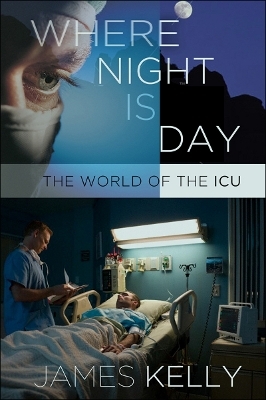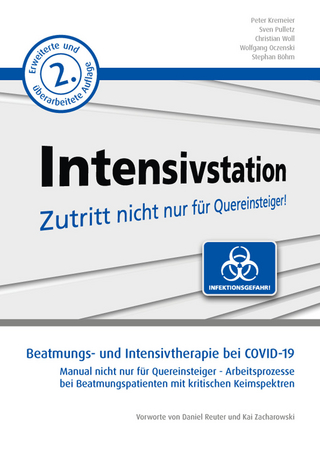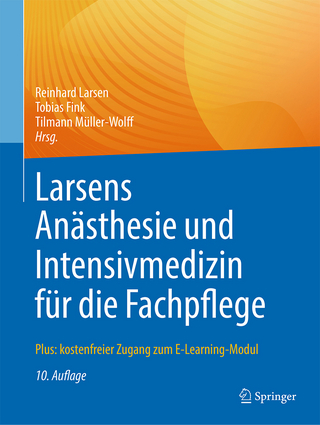
Where Night Is Day
The World of the ICU
Seiten
2013
Ilr Press (Verlag)
978-0-8014-5168-3 (ISBN)
Ilr Press (Verlag)
978-0-8014-5168-3 (ISBN)
- Lieferbar (Termin unbekannt)
- Versandkostenfrei innerhalb Deutschlands
- Auch auf Rechnung
- Verfügbarkeit in der Filiale vor Ort prüfen
- Artikel merken
Where Night Is Day is a nonfiction narrative grounded in the day-by-day, hour-by-hour rhythms of an ICU.
"There is no night in the ICU. There is day, lesser day, then day again. There are rhythms. Every twelve hours: shift change. Report: first all together in the big room, then at the bedside, nurse to nurse. Morning rounds. A group of doctors moves slowly through the unit like a harrow through a field. At each room, like a game, a different one rotates into the center. They leave behind a trail of new orders. Wean, extubate, titrate, start this, stop that, scan, film, scope. The steep hill the patient is asked to climb. Can you breathe on your own? Can you wake up? Can you live?"—Where Night Is Day
Where Night Is Day is a nonfiction narrative grounded in the day-by-day, hour-by-hour rhythms of an ICU in a teaching hospital in the heart of New Mexico. It takes place over a thirteen-week period, the time of the average rotation of residents through the ICU. It begins in September and ends at Christmas. It is the story of patients and families, suddenly faced with critical illness, who find themselves in the ICU. It describes how they navigate through it and find their way. James Kelly is a sensitive witness to the quiet courage and resourcefulness of ordinary people.
Kelly leads the reader into a parallel world: the world of illness. This world, invisible but not hidden, not articulated by but known by the ill, does not readily offer itself to our understanding. In this context, Kelly reflects on the nature of medicine and nursing, on how doctors and nurses see themselves and how they see each other. Drawing on the words of medical historians, doctor-writers, and nursing scholars, Kelly examines the relationship of professional and lay observers to the meaning of illness, empathy, caring, and the silence of suffering. Kelly offers up an intimate portrait of the ICU and its inhabitants.
"There is no night in the ICU. There is day, lesser day, then day again. There are rhythms. Every twelve hours: shift change. Report: first all together in the big room, then at the bedside, nurse to nurse. Morning rounds. A group of doctors moves slowly through the unit like a harrow through a field. At each room, like a game, a different one rotates into the center. They leave behind a trail of new orders. Wean, extubate, titrate, start this, stop that, scan, film, scope. The steep hill the patient is asked to climb. Can you breathe on your own? Can you wake up? Can you live?"—Where Night Is Day
Where Night Is Day is a nonfiction narrative grounded in the day-by-day, hour-by-hour rhythms of an ICU in a teaching hospital in the heart of New Mexico. It takes place over a thirteen-week period, the time of the average rotation of residents through the ICU. It begins in September and ends at Christmas. It is the story of patients and families, suddenly faced with critical illness, who find themselves in the ICU. It describes how they navigate through it and find their way. James Kelly is a sensitive witness to the quiet courage and resourcefulness of ordinary people.
Kelly leads the reader into a parallel world: the world of illness. This world, invisible but not hidden, not articulated by but known by the ill, does not readily offer itself to our understanding. In this context, Kelly reflects on the nature of medicine and nursing, on how doctors and nurses see themselves and how they see each other. Drawing on the words of medical historians, doctor-writers, and nursing scholars, Kelly examines the relationship of professional and lay observers to the meaning of illness, empathy, caring, and the silence of suffering. Kelly offers up an intimate portrait of the ICU and its inhabitants.
James Kelly works in critical care as an RN in the ICU at Lovelace Women's Hospital in Albuquerque, New Mexico.
Introduction
1. The Voyage into the Sea of Critical Illness
2. Diagnosis, Diagnosis, Diagnosis
3. Nursing Isn't a Journey
4. One More Day
5. The Dream of Cure
6. Nursing: What It Is and What It Is Not
7. Caring
8. Medicine as Ghost Rain
9. Dying
10. Poetic and Tragic Murmurings of the Everyday
11. They Tell Us Everything
12. Can They Hear?
13. Leaving Ends the Love
14. The HorizonEpilogue
Notes
| Reihe/Serie | The Culture and Politics of Health Care Work |
|---|---|
| Verlagsort | New York |
| Sprache | englisch |
| Maße | 152 x 229 mm |
| Gewicht | 907 g |
| Themenwelt | Literatur ► Biografien / Erfahrungsberichte |
| Sachbuch/Ratgeber ► Gesundheit / Leben / Psychologie | |
| Medizin / Pharmazie ► Medizinische Fachgebiete ► Intensivmedizin | |
| Pflege ► Fachpflege ► Anästhesie / Intensivmedizin | |
| ISBN-10 | 0-8014-5168-X / 080145168X |
| ISBN-13 | 978-0-8014-5168-3 / 9780801451683 |
| Zustand | Neuware |
| Haben Sie eine Frage zum Produkt? |
Mehr entdecken
aus dem Bereich
aus dem Bereich
Manual nicht nur für Quereinsteiger - Arbeitsprozesse bei …
Buch | Softcover (2021)
Pabst Science Publishers (Verlag)
25,00 €
Buch | Hardcover (2021)
Springer (Verlag)
69,99 €
Diagnostik, Therapie, Versorgung
Buch | Softcover (2024)
Urban & Fischer in Elsevier (Verlag)
64,00 €


